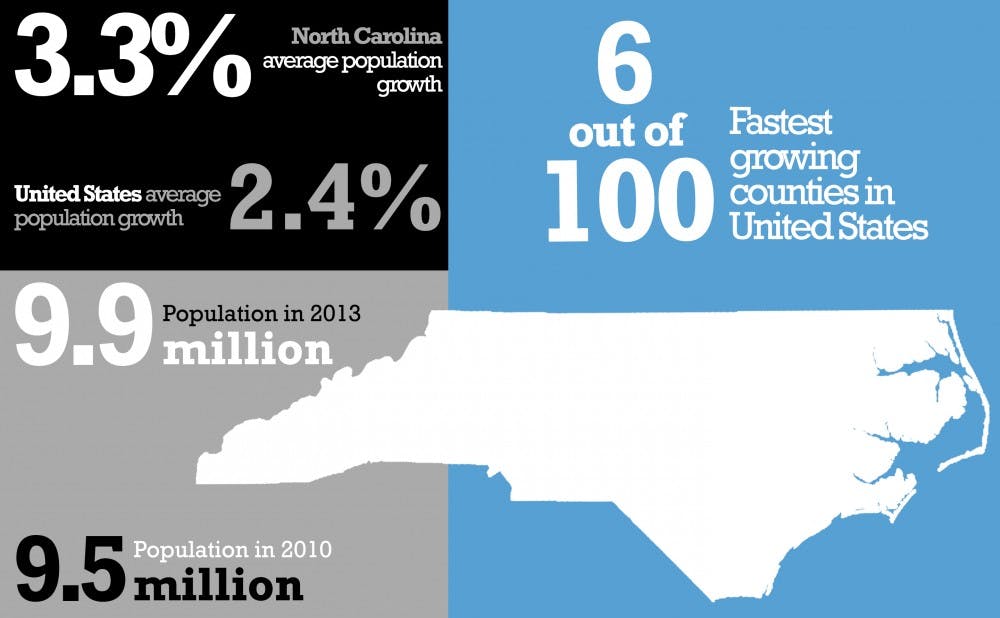People are flying to the state that was first in flight.
According to the 2013 census, the population of North Carolina has reached 9,848,060—rising 3.3 percent since 2010. With a national average growth rate of 2.4 percent, this makes the state one of the fastest-growing in the country. A large reason for the robust growth is that the state contains six of the 100 fastest growing counties in the country.
Mecklenburg county, home to the city of Charlotte, is one of the counties showing the highest rate of growth.
“People are choosing Charlotte for the quality of life, for the cost of living, for the climate and for the opportunity,” said Natalie Dick, the vice president of communications and research for the Charlotte Chamber of Commerce.
According to the study, the county added around 71,000 residents since 2010—a growth rate of about 7.8 percent.
Dick noted city officials are excited about the possibilities that accompany a growing population.
Large population swings can strain local resources if not handled properly, said John Aldrich, Pfizer-Pratt University professor of political science. He noted, however, that population increases can be valuable to cities because of the human capital they bring.
“I don’t think anybody is concerned about it becoming a problem,” Dick said. “We welcome it.”
City planners acknowledge there will be challenges to Charlotte’s transportation infrastructure because of the growing population. She noted the system would be further strained because of impending federal budget cuts.
Evan Lowry, a senior principal planner for the Charlotte-Mecklenburg planning department said changes in population bring zoning complications for city planners as well.
“The growth does cause a lot more work for our planners,” he said.
Aldrich noted that the growing black and Latino populations in the state—which traditionally lean Democratic—could pose a challenge to the Republicans that currently control the state house.
Latinos are finding North Carolina a more desirable living destination in part because of the state’s university system, Aldrich said.
“Because of the universities, there are highly-educated people who are highly concerned about [issues that affect Latinos] who are willing to get involved in community service,” he said.
The North Carolina Department of Administration could not be reached.
Although she was not aware of the specific demographic trends associated with Charlotte’s population increase, Dick said she is proud of how Charlotte has been able to attract young people.
Aldrich said he agreed the state was doing a good job attracting young professionals, particularly technologically-oriented researchers.
“North Carolina is a state that has a well-earned reputation as a nice place to live,” he said.
The population increase can only be a good thing, as long as the government keeps an ear to the street, Dick said.
“There is so much opportunity as long as we plan smartly and plan together in the private and public capacity and work together,” she said.Get The Chronicle straight to your inbox
Signup for our weekly newsletter. Cancel at any time.

